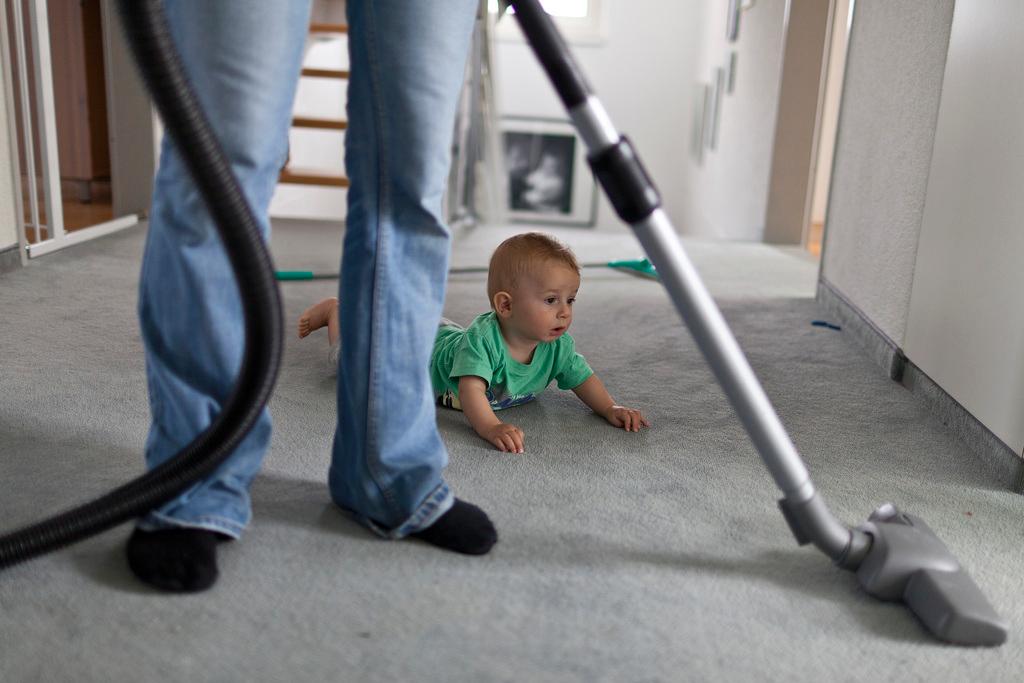No tax break for families

An initiative calling for child allowances and education costs to be tax deductible has failed at the ballot box. It has been rejected in a majority of cantons and has the support of only about a quarter of voters.
It was the third time in two years that Swiss voters went to the polls to decide on a proposal to alleviate the tax burden for families. The centrist Christian Democrats had hoped to give relief to families and boost the purchasing power of the middle class. But opponents of the current measure claimed that in fact, the tax deductions would primarily benefit wealthy families, and a projected CHF1 billion ($1.05 billion) drop in revenue would trigger spending cuts in other areas, many of which would affect lower-income families.

More
Energy tax reform runs out of steam
Pros and cons
Before the vote, Christian Democratic parliamentarian Lucrezia Meier-Schatz had stressed that the party’s initiative was “simple and would have an immediate impact. I’m sure that parents can put two and two together. Adding up the figures, they will understand that the proposed tax breaks will boost their purchasing power.”
But the fact that the initiative would take effect immediately, reducing federal income by up to CHF200 million and cantonal and communal income by CHF760 million, was a reason for many organisations to recommend casting a ballot against the initiative.
On a personal level, adverse economic conditions, including the negative impact of the strong Swiss franc and the announcement of the first state deficit in almost ten years, may also have played a role in the vote, Meier-Schatz said in an interview on Sunday with Swiss public television, SRF.
The financial consequences of the proposal were the most important argument used by the opponents, said Claude Longchamp, director of polling institute GfS Bern. “In times like these, people aren’t willing to experiment,” he told Swiss public radio, SRF. And in a television interview Longchamp pointed out that in many cases initiatives fail because, although voters support the principle, they disagree with the solution proposed.
The federal and cantonal governments and almost all of the major political parties had recommended voting against the initiative. At a press conference on Sunday, Finance Minister Eveline Widmer-Schlumpf stressed that Switzerland already does much to support children and families, and will continue to do so in the future. “The family discussion has not ended,” she said.
Other proposals
It wasn’t the first family-friendly proposal to be defeated. In March 2013 a constitutional amendment proposed by parliament to improve conditions for parents wishing to combine work and family was thrown out at the ballot box. It aimed at giving both the federal and cantonal authorities powers to boost childcare options. And a separate initiative by the conservative right Swiss People’s Party to grant tax breaks for families who look after their children at home was also rejected by voters in November 2013.
“An initiative is always difficult to win,” said the Christian Democrats’ general secretary, Béatrice Wertli, in an interview with SRF. This time the party was unable to mobilise voters beyond its own basis, she said, but there were certainly many families who voted in favour of the initiative, and the party will continue to fight to bring relief to the middle class.
The current family-centered initiative won’t be the last. Another proposal by the Christian Democrats aims at putting tax rates and pensions of married couples on par with registered partnerships. And the leftwing Social Democratic Party has plans for an initiative to amend the system of child benefits. The launch of that initiative, originally set for February, has been postponed.

In compliance with the JTI standards
More: SWI swissinfo.ch certified by the Journalism Trust Initiative



You can find an overview of ongoing debates with our journalists here. Please join us!
If you want to start a conversation about a topic raised in this article or want to report factual errors, email us at english@swissinfo.ch.